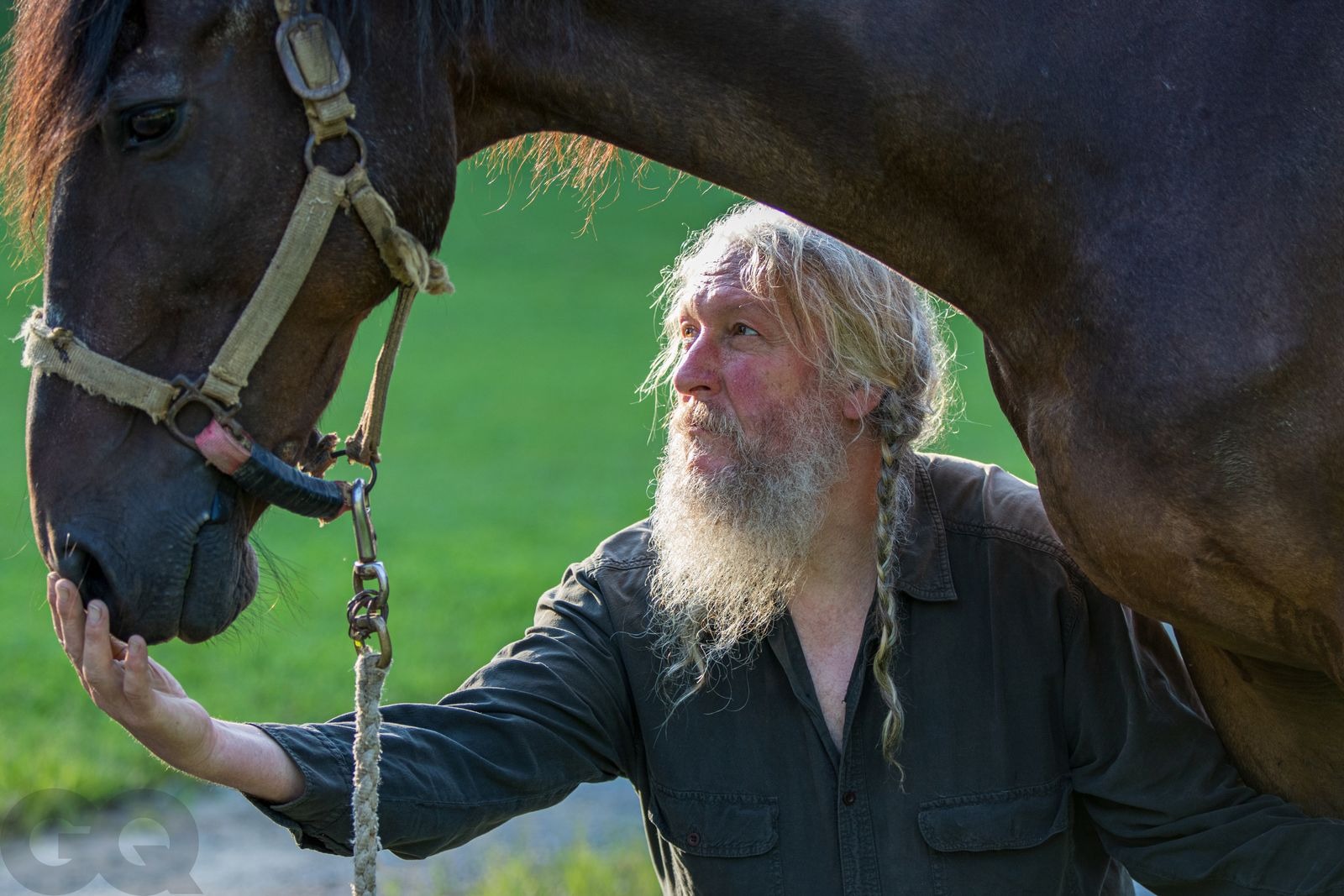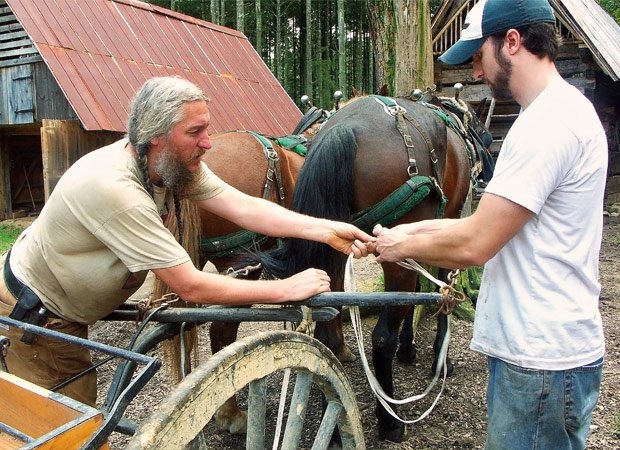# What Eustace Conway Doesn’t Want You To Know About Mountain Men

Eustace Conway, a prominent figure on the History Channel’s *Mountain Men*, has captivated audiences with his rugged lifestyle and deep connection to nature.
As a naturalist and owner of the 1,000-acre Turtle Island Preserve in Boone, North Carolina, Conway embodies the image of the last American frontiersman. However, behind the televised persona lie hidden truths and controversies that reveal a more complex story about his life and the show itself
Born in 1961 in Columbia, South Carolina, Conway was drawn to the wilderness from a young age. At 17, he rejected modern life, moving into a teepee in the woods while his peers focused on conventional paths.
His daring feats include canoeing 1,000 miles on the Mississippi River at 18, hiking the Appalachian Trail, and reportedly setting a world record for crossing the U.S. on horseback in 103 days. With degrees in anthropology and English from Appalachian State University, Conway’s education deepened his understanding of human history, yet his true calling was a primitive lifestyle.
In 1987, he founded Turtle Island Preserve in the Blue Ridge Mountains, a nonprofit environmental education center where he teaches ancient survival skills, aiming to bridge the gap between humanity and nature.

*Mountain Men*, launched in 2012, brought Conway national fame, portraying him as a survivalist hero. Viewers admired his independence as he built cabins and taught wilderness skills. However, the show often glosses over the harsh realities of his life.
Running Turtle Island is far from easy; Conway faces constant financial pressures, including taxes and legal battles. In 2012, the Watauga County Planning and Inspection Department investigated Turtle Island after an anonymous complaint, citing numerous unpermitted structures and code violations.
Inspectors found unsafe wiring, unpermitted outhouses, and structurally unsound buildings. Conway was given three options: comply with state standards, certify the structures, or demolish them. He argued the timing—coinciding with the show’s debut—suggested targeted harassment, and while a 2013 state law eventually exempted primitive camps from certain codes, the ordeal highlighted the clash between his ideals and modern regulations.

Beyond legal woes, Conway faced personal challenges. In 2005, visitor Kimberly Baker was blinded in one eye during a demonstration at Turtle Island, leading to a lawsuit. Conway settled for $75,000, struggling to pay and eventually mortgaging land. Moreover, *Mountain Men* itself is not entirely authentic.
Scenes are often staged or exaggerated for drama, a fact Conway has acknowledged indirectly, noting reality TV prioritizes suspense over reality. He once told author Elizabeth Gilbert for her book *The Last American Man* that he plays a “wild guy” role for the public, aware it’s partly an act.
These hidden struggles—legal battles, personal losses, and the staged nature of the show—reveal a man balancing authenticity with the demands of fame.Conway doesn’t necessarily hide these truths, but their exposure might shatter the romanticized image fans hold, showing that living close to nature today involves navigating both wilderness and modern constraints.

